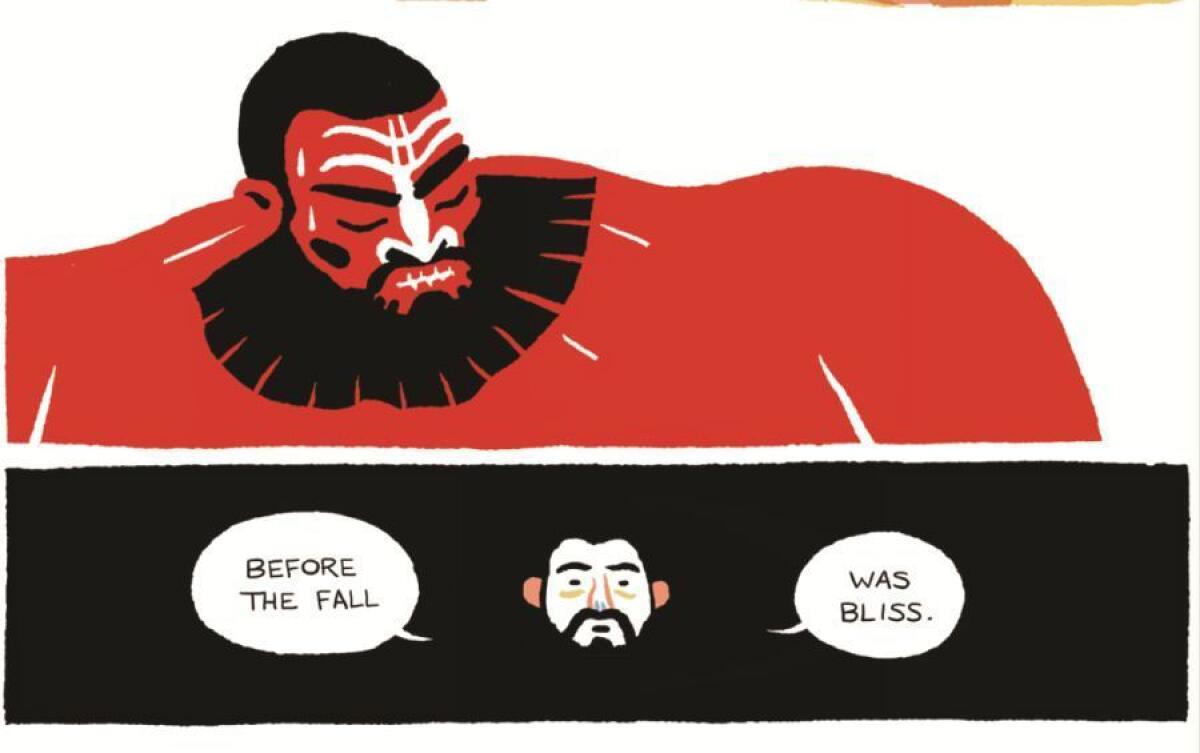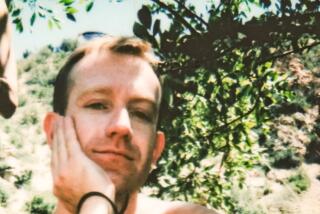Comics artist Eleanor Davis: âHow to be Happyâ in a toxic world

In the story âNita Goes Home,â the title character leaves her world -- a protected biodome where trees grow tall and bushes dispense berries -- for the outside world, where humans must wear face-covering âtoxoff suitsâ that protect them from skies filled with blood-red pollution.
This dystopic short story is part of âHow to Be Happy,â a new collection of comics by Georgia-based artist and illustrator Eleanor Davis. The stories in the collection (the book is many comics in one) run the gamut of topics: an odd flirtation between two teens, a fable about a man who transports animalistic monsters on a boat, a visual travelogue that chronicles a bus trip between Georgia and Los Angeles, and a self-help guru who sells salvation through the act of crying.
Though Davisâ tales can be wildly different in look and narrative, they are united by themes of yearning, of characters searching for the thing that will make their lives better.
âIâm looking at this very humorous urge we have to search for these magic bullets,â she said, âan instinct that is sad but understandable.â
In the past, Davis has created books for children: âThe Secret Science Alliance and the Copycat Crookâ and âStinky.â But in her new collection, sheâs examining more adult topics.
In âNita Goes Home,â Nita searches for escape in an agricultural dome that is physically and psychologically disconnected from the realities of everyday life in a world in which the air cannot be breathed. In another story, titled âIn Our Eden,â a group of rugged idealists attempt to live off the land. But as they aim to create a new society, they canât get away from the all-too-human act of bickering.
âThere are people who get obsessed about the idea of going back to nature and that everything will be perfect when they do,â Davis said, âthat if we live simply enough, basic human flaws -- discord, anger, hierarchical behavior -- can be washed away. But things donât quite work that way.â
Also remarkable: a series of simple, pencil-sketch pages that tell the story of the skinning of a fox. These are accompanied by short texts that have the effect of turning the skinning into poetry: âTwo very careful cuts and suddenly there he was, his dark jelly eyes watching the mask of his own face pulling downward.â
But what grabbed my attention above all was Davisâ exquisite use of color and form. The story âIn Our Edenâ features people drawn in stark shades of blue and red, figures that evoke the drama of Japanese blockprints (as in the image at top).
âNita Goes Homeâ is unusual in that it doesnât portray dystopia in dim shades of black, gray and blue. Davisâ polluted future is brightly colored: Characters wear dazzling suits to protect themselves from the air in a place where the skies are always crimson. (Think: L.A. sunset during a smog alert.) It is beautiful. But it is also disconcerting -- in the same way that Edward Burtynskyâs lush photographs of our soiled landscape can be so unnerving.
From story to story, Davis varies her technique. Some (like âIn Our Edenâ) are rendered digitally using programs such as Photoshop. Others, such as âNita Goes Home,â are done in warm watercolor. A few are hand-drawn in black ink.
But âHow to Be Happyâ left me wanting more. The book feels like an appetizer for something bigger, something bigger that doesnât quite come. When I spoke with Davis, she said she found the idea of a full-length graphic novel a bit daunting. (She works professionally as an illustrator, doing work for various magazines and the New York Times. She has also done Google Doodles.)
âA graphic novel is a huge project to take on,â she said. âItâs such a tricky thing. So, Iâve kept doing short work.â
Thatâs too bad. Davis is a good storyteller, and her color panels are stunning. Hereâs hoping she changes her mind.
âHow To Be Happyâ ($24.99) by Eleanor Davis is available from Fantagraphics Books this month. This week, Davis is also doing cartoon diaries about her life as an artist for the Comics Journal.
Find me on Twitter @cmonstah
More to Read
The biggest entertainment stories
Get our big stories about Hollywood, film, television, music, arts, culture and more right in your inbox as soon as they publish.
You may occasionally receive promotional content from the Los Angeles Times.











